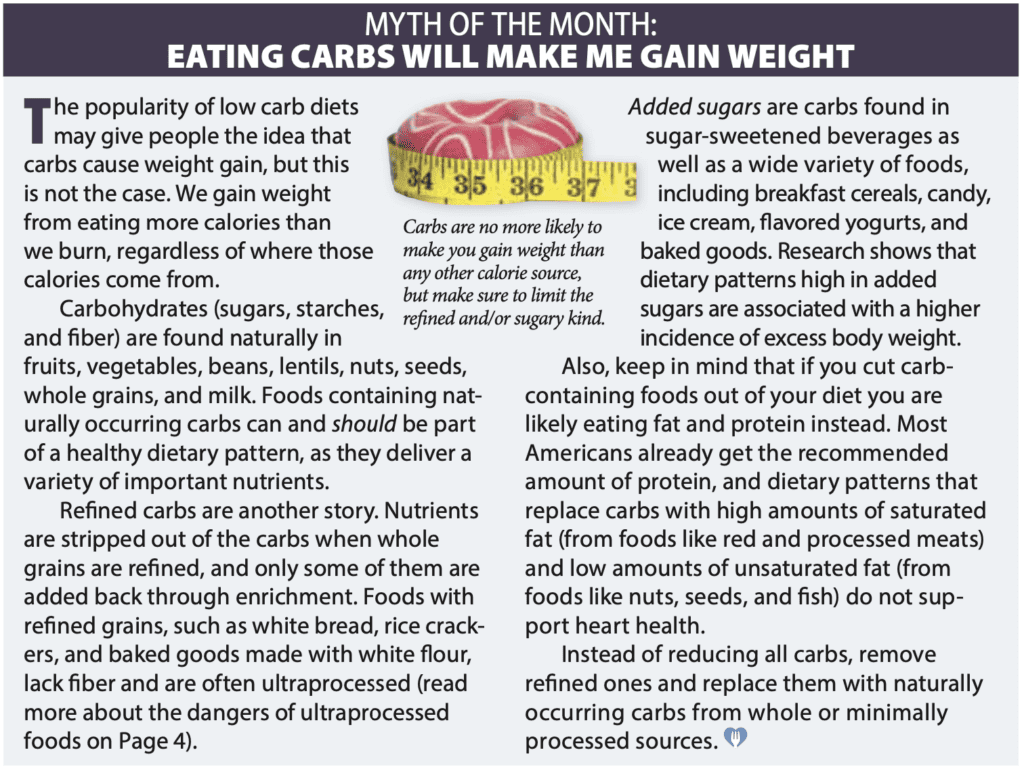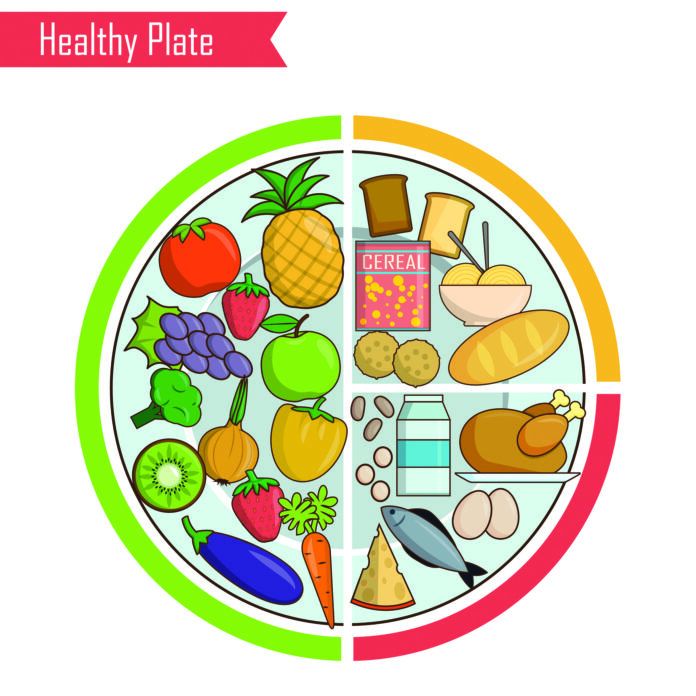Q: Are there any foods we should eat every single day?
A:Diane L. McKay, PhD, an assistant professor at both the Friedman
School of Nutrition Science and Policy and the Tufts School of Medicine, answers: “There are food groups we should eat every day, but not foods. While it is tempting to believe eating a few special foods daily will optimize health and prevent disease, the real secret to meeting all your nutrient needs is to choose a variety of whole or minimally processed foods among and within each of the five food groups: fruits, vegetables, grains, protein foods, and dairy.
“Different food groups tend to contain different nutrients. For example, fruits and vegetables are good sources of vitamins A and C, whereas whole grains provide B vitamins (thiamin, riboflavin, niacin, and folate), iron, and fiber. Nutrient content varies within food groups, as well. For example, even though sweet red peppers and dark leafy greens both provide vitamin C, the greens have more vitamin K. Let’s take a look at how to make the best choices within each food group:
Fruits and vegetables: Choose whole and minimally processed versions of fruits and vegetables, rather than juices or choices with added sugars and salt.
Grains: prioritize whole grains, such as whole wheat, oats, barley, and quinoa, over refined grains, such as white bread and pastries.
Protein foods: Beans, lentils, fish/shellfish, unsalted nuts/seeds, eggs, low fat and fat free dairy, and unprocessed poultry and lean meats are all good options.
Dairy: Choose low fat or fat free options. Lactose-free products are widely available. Make sure any plant-based options are fortified with calcium and vitamin D. (Plant-based dairy alternatives are often highly processed, and, with the exception of soy, are not nutritionally equivalent to milk. Look for versions without added sugars.)
“If you are looking for a resource to help you build a healthy dietary pattern made up of a variety of foods from each food group, check out www.MyPlate.gov.”






















